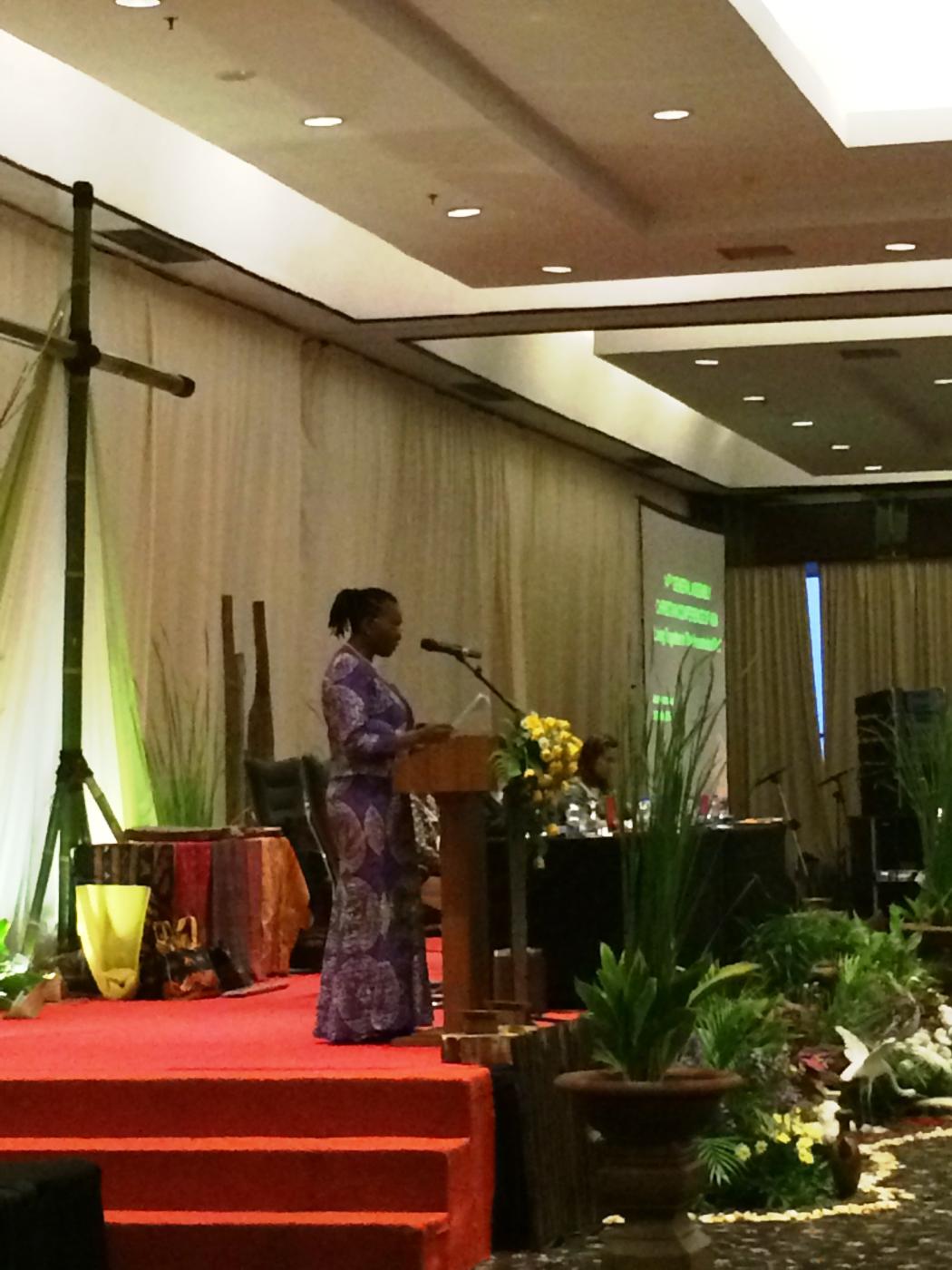”Truly, I am in the household of God,” began World Council of Churches (WCC) associate general secretary for public witness and diakonia Dr Isabel Apawo Phiri in her keynote speech today at the 14th Assembly of the Christian Conference of Asia.
Referring to the hospitality and the warm welcome from the Indonesian hosts at the conference, the Batak Christian Protestant Church and the Communion of Churches in Indonesia, Phiri went on to reflect in greater depth on the conference theme ”Living Together in the Household of God.”
One dimension of the theme is living together in love, Phiri continued: ”Being followers of Christ means we have to listen to each other's narratives, challenges and successes. We need to accompany each other in our lives as part of living together.”
An important dimension of the second part of the theme, "The Household of God," is the challenge faced by the church of God today, when the ecumenical movement is forced to deal with divisions within churches over exclusion and discrimination based on race, caste, gender, HIV, AIDS and sexual orientation.
”One urgent question is how we can live together in such a way that no one feels alien in the household of God... All children of God deserve to be reached with God’s love.”
Phiri also noted that living together ecumenically allows Christians to respond to issues together as one church, creating a powerful voice in the international public arena. It is not just for Asian churches to do so, but for all churches in solidarity with one another.
That will not be easy, she noted, since churches themselves do not always agree. For example, she said, “Violence against women and questions of women’s participation in the church are divisive issues in the body of Christ. But they have remained important in the ecumenical movement as they still raise issues of justice in the household of God where God is justice. Human trafficking and the brutal rape of women in Asia have not abated, as is the case in other parts of the world. Now, more than ever, there is need for more coordinated effort by the church in Asia to purge this evil from the household of God.”
Urgent areas of close cooperation, in Phiri's view, involve seeing and articulating the link between our consumption patterns and the destruction of the earth.
She put the assembly theme in the context of the pilgrimage of justice and peace, underlining that the qualities of the household of God should guide us in our walk together.








